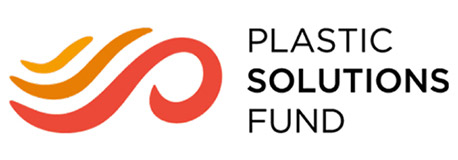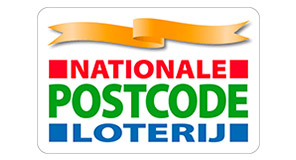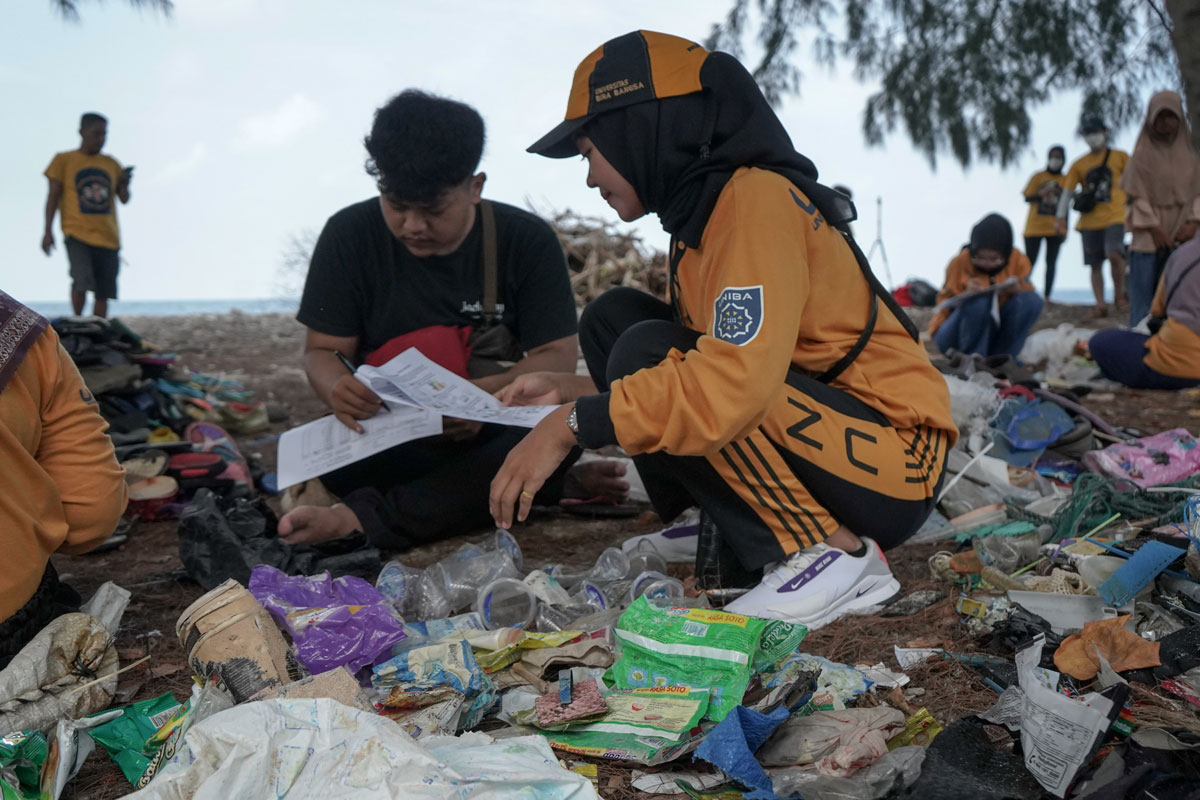Manila, Philippines (17 September 2022) - Today, on World Cleanup Day, Break Free From Plastic members are harnessing the power of citizen science and community action to hold corporate polluters accountable for the plastic pollution crisis they have created. The global #BreakFreeFromPlastic movement unites thousands of environmental groups around the world to end plastic pollution for good.
Through its global brand audit initiative, members of the #BreakFreeFromPlastic movement are collectively organizing brand audits in over 40 countries to record data in order to identify the brands responsible for the plastic pollution found in worldwide cleanups and hold those companies accountable. These audits have taken place yearly since 2018, making 2022 the fifth annual global effort.
Spanning every continent except Antarctica, thousands of volunteers are leading creative and impactful brand audits in their communities. This year, brand audits are being held everywhere from the volcanic caldera of Lake Ilopango in El Salvador (CESTA Amigos de la Tierra El Salvador), to a city zoo in downtown Tbilisi, Georgia (The Greens Movement of Georgia), to underwater with scuba divers along the Australian coastlines (Sea Shepherd’s Marine Debris Campaign), to the busiest shopping mall in Nigeria (SRADev Nigeria), to national parks all across the United States (5 Gyres).
In the Philippines, through the Plastic-Free Pilipinas (PFP) network¹, BFFP member groups have organized brand audits in San Juan City to call on top corporate polluters to urgently address the impacts of their plastic production, by shunning false solutions and investing heavily in sustainable reduction strategies and reuse systems. PFP also highlighted that there are existing alternative sustainable solutions spearheaded by communities locally and globally. These are zero waste systems like reuse and refill which corporations can take inspiration from and scale up on a national level.
“We can end plastic clean ups by doubling down on corporate accountability,” said Break Free from Plastic global coordinator Von Hernandez. “For five years in a row, our movement has mobilized thousands of volunteers all over the world to conduct brand audits and hold the companies responsible for driving the plastic pollution crisis to account. While the number of events and locations change each year, the culprits in this story remain the same, and unless these top corporate polluters invest in real solutions that move us away from dependence on single-use plastics, we will continue to see the same brands and companies wreaking havoc on the climate and our environment.”
This year’s brand audits come at the heels of Ocean Conservancy’s (OC) historic retraction of their 2015 “Stemming the Tide” report, which painted Global South countries like the Philippines, Indonesia and Vietnam as the main sources of ocean-bound plastic waste². The organization, which has popularized coastal clean-ups globally, also acknowledged the outsized role developed countries have in the ongoing plastic crisis and apologized for the concrete harms done to developing countries, particularly the promotion of waste incineration as a viable solution. Their retraction also acknowledges that waste management must be paired with greater upstream reduction efforts on virgin plastic production.
Froilan Grate, Regional Director of GAIA Asia Pacific comments, “With the report retraction and the ongoing restorative justice process between Ocean Conservancy and the impacted communities, we hope to encourage Global North-led organizations to take a look and see how they do business with the Global South. We ask that they revisit their practices and operations, listen and talk to people working on the ground and see the reality with their own eyes. The ICC is done every year, but we envision that this year’s Brand Audit would be the starting point where OC’s partners also include brand audits in their programs and help us unmask the real polluters.”
Brand audits are citizen science initiatives that take clean-up activities to the next level by pinpointing the real drivers of pollution. Since its inception in 2018 brand audits have mobilized citizens and activists from different countries in calling for greater corporate accountability and the wholesale cooperation of all sectors of society in dealing with the plastic crisis. Plastics are collected from their respective waste streams and are audited based on brand and plastic type.
"Cleaning up plastic waste has become an impossible task--for every second someone picks up a piece of plastic, thousands more are being churned out by factories around the world," said Greenpeace Campaigner Jefferson Chua. "Coastal Clean Up Day should be renamed Corporate Plastic Reduction Day. The point of doing cleanups is to stop doing clean ups--and this can only happen when companies like Coca-Cola, Nestle and Unilever start massively reducing their plastic production. Until manufacturers start taking reduction seriously, and governments actively mandate bans and reduction measures, we will never see an end to plastic pollution.”
Past brand audits revealed the top corporations as the worst plastic polluters globally, with the likes of The Coca-Cola Company, PepsiCo, Nestlé, Procter & Gamble, Mondelez, and Unilever among those consistently leading the list. The Coca-Cola Company has emerged as #1 Top Plastic Polluter every year since 2018.
“The top plastic polluters appear to be doing everything they can to avoid changing their exorbitant use of single-use plastic. False solutions, broken promises and token pilot projects is all we’ve seen. That is why thousands of ordinary people from around the world go out into their neighborhoods to collect and count plastic - to document corporate pollution and demand change,” said Emma Priestland, Corporate Campaigns Coordinator of Break Free From Plastic. “The very consumers these companies are reliant on are giving their own time and energy to try to get these companies to change. It’s time that these corporate polluters listened to the people and started investing in an end to single-use plastic packaging.”
This year’s global brand audits have been made possible through the contributions of more than 3 million participants of the Dutch Postcode Lottery, and support from the Plastic Solutions Fund.
Special thanks to Greenpeace Philippines, a founding core member of the Break Free From Plastic movement, for their leading contribution to this press release.
About Break Free From Plastic – #breakfreefromplastic is a global movement envisioning a future free from plastic pollution. Since its launch in September 2016, over 11,000 non-governmental organizations and individuals from across the world have joined the movement to demand massive reductions in single-use plastics and to push for lasting solutions to the plastic pollution crisis. These organizations share the common values of environmental protection and social justice, and work together through a holistic approach to bring about systemic change. This means tackling plastic pollution across the whole plastics value chain—from extraction to disposal—focusing on prevention rather than cure and providing effective solutions. www.breakfreefromplastic.org.
###
Note to Editors:
To view the brand audit website and previous years’ reports, click here.
[1] Greenpeace Philippines, Global Alliance for Incinerator Alternatives, Mother Earth Foundation, Ecowaste Coalition, and Health Care Without Harm
[2] Stemming the Tide statement of accountability (2022), Ocean Conservancy.
Press Contacts:
• Global: Caro Gonzalez | caro@breakfreefromplastic.org, +1 (646) 991-1013
• Asia Pacific: Eah Antonio | eah@breakfreefromplastic.org, (+63) 927-827-7960
• Europe: Bethany Keeley | bethany@breakfreefromplastic.org, (+44) 7903-569-531
• United States: Brett Nadrich | brett@breakfreefromplastic.org, +1 (929) 269-4480
Break Free From Plastic’s brand audit initiative is supported by:






